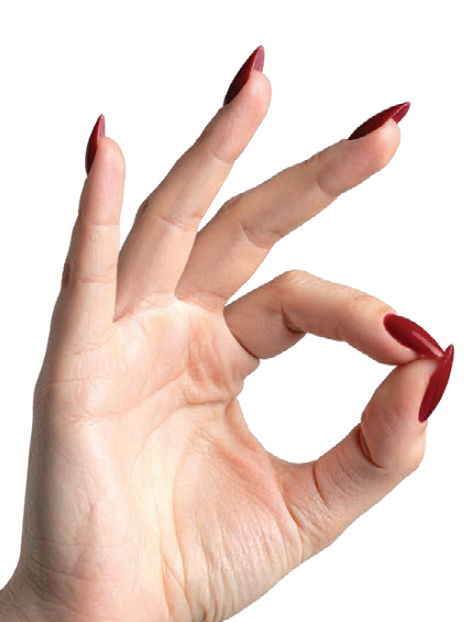From the Summer 2025 Journal of the Colorado Dental Association
By Casey Rhines, D.D.S., CDA Editor
 As dental providers we, first and foremost, make people healthy. We make the mouth — the gateway to the whole body — functional, free from infection and ideally free from pain. It’s also our job to literally help people smile, which can increase their confidence, raise self-esteem and even improve their mental health in the process.
As dental providers we, first and foremost, make people healthy. We make the mouth — the gateway to the whole body — functional, free from infection and ideally free from pain. It’s also our job to literally help people smile, which can increase their confidence, raise self-esteem and even improve their mental health in the process.
I remember when I gave a presentation to the staff about treatment acceptance: “We’re not selling Botox … we are selling a good night’s sleep. How much would you pay to finally sleep through the entire night, wake up without jaw pain and actually feel rested?”
My boss encouraged me after, “a really good salesperson …”
I am a really good salesperson, I remember thinking. I realized I could sell anything to anyone by creating value that they cared about. I wasn’t selling a crown; I was selling the safe feeling of being able to eat whatever they wanted without having to remember to chew on a certain side. For months I was the uncontested saleswoman of the year; I sold confidence, peace of mind and the ability to eat ice cream.
I remember the first couple of times I told a patient they could get Botox . They took the mirror in one hand and began inspecting their face with the other. The pit in my stomach grew. Was I selling insecurity? Treatment acceptance is an important part of dentistry but where is the line where we’re delivering what the patient wants verses offering what was never a thought in their mind in the first place?
Insecurity sells better than anything else — this is a large reason the market for teenage girls is so saturated with products. As a former teenage girl, I feel these insecurities linger and reach for corporate purchases to relieve my discomfort. Frustrated and feeling lost in our capitalist society, I wrote this excerpt of a poem, using eyelashes as an example of how we nitpick ourselves and find the smallest “problems” to tweak and fix.
I fear a “natural woman” is a construct
Designed by men in boardrooms
To create new insecurities
About new beauty standards
Standards they conjure up
To sell us products.
False eyelashes are all the rage!
So throw out your mascara
Get lash extensions
And buy these products so they last
Don’t you want to look natural?
Wake up looking beautiful and ready to go!
But actually, they’re tacky
And they don’t look natural
So buy this mascara!
We’ll call it falsies
We’ll call it better than falsies
We’ll call it extensions in a bottle
It’s more natural than gluing something onto your eye and don’t you want to be
natural?
Don’t you want to look like our campaign models?
Who are wearing false eyelashes
But you don’t have to!
Oh, this product doesn’t make you look like the models?
That’s because you have to use MORE
You have to use four coats, silly!
That way you buy four times as much product!
To many of us, this sounds naïve. You might be wondering, “Do people really think this way?” But we hear the same plea in different words almost daily from patients: if my teeth weren’t so yellow, I would smile more.
Where did this insecurity come from? Many patients are embarrassed by a crooked tooth, a chip, or what they perceive to be discolored teeth. While some people have never thought twice about their mandibular crowding, others insist that their favorite celebrity has “perfect” teeth and they need to as well. My Instagram is full of “composite bonding” treatments (many that look incredible — seriously, how do some of you do it?) while Netflix is full of veneers.
Dental insecurity isn’t new, but the overconsumption of media is. Celebrities used to be akin to alien beings that we only heard about when we flipped through magazines or we finished dinner early enough to catch our favorite show. Nowadays, we open an app on our ever-present cellphones and are immediately bombarded with celebrity and influencer content with which we can directly interact. Influencers have upgraded to celebrity status. These “microcelebrities” are expected to perform and appear the same as those with an entire team dedicated to their publicity and appearance while maintaining their relatability to the average person to sell products. This has contributed to an epidemic of insecurity where average patients are comparing themselves to influencers who are comparing themselves to celebrities. As dentists, it’s our duty to reinforce the idea that a healthy smile is the best smile — everything else is optional.
I’m making my way through Seinfeld for the first time (crazy, I know) and it’s refreshing to see natural teeth: George’s generalized wear, Elaine’s canine that is tipped lingually, laterals that are slightly whiter than their canine counterparts. In comparison, one of the newest shows on Netflix, Selling the City, showcases realtors who all oddly look the same: hollow cheekbones, smooth foreheads, glowing skin and bright white teeth.
To quote Carrie Bradshaw from my favorite New York-themed show, “I couldn’t help but wonder … what else are they selling?”

